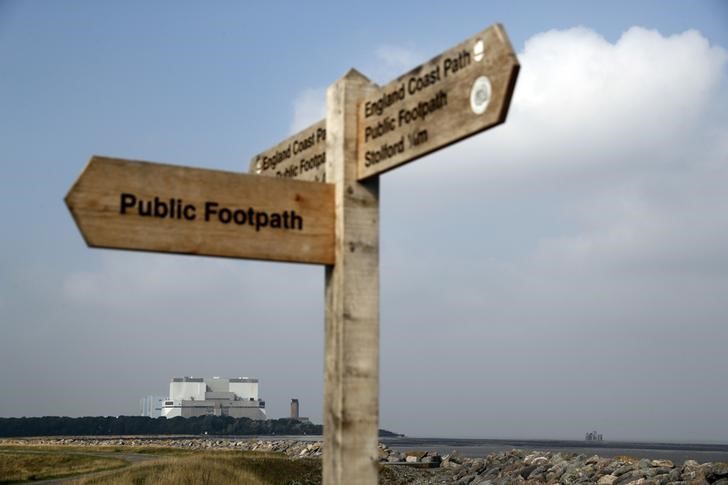By Geert De Clercq
PARIS (Reuters) - The board of French state-controlled utility EDF (PA:EDF) on Tuesday confirmed its approval to go ahead with the Hinkley Point nuclear project in Britain, EDF said in a statement.
EDF Chief Executive and chairman of the board Jean-Bernard Levy had submitted the project to a vote again after the British government earlier this month imposed limits on EDF's right to sell its two-third stake in the project.
Under revised terms announced on Sept. 15, the government of new British Prime Minister Theresa May said it would be able to block the sale of EDF's controlling stake before or after completion of the project -- a proviso it said it would apply to significant stakes in all future nuclear projects.
These conditions followed a surprise delay to the May government's approval for Hinkley Point. The delay was announced on July 28, just hours after the EDF board had voted in favour of the project with a narrow majority.
"The EDF Board has today confirmed that the conditions set out at its meeting on 28th July 2016 are met in order to sign the project contracts," EDF said in a statement.
It gave no date for a possible signature of the contracts. A signing ceremony set for July 29 had been cancelled. A source familiar with the situation told Reuters the EDF and the UK government had agreed to sign the contract on Thursday. EDF declined to comment on a signature date.
EDF said the board had authorised its chairman to formalise its commitment to the UK Government not to sell down control of Hinkley Point project company NNB Genco during the construction phase.
It added that EDF will also inform the British government that EDF has no current intention to make use of the first tranche of the UK state loan guarantee for the project.
Sources familiar with the situation told Reuters that the UK government had asked EDF not to make use of the 2 billion pound guarantee, but that EDF had not planned to do that anyway as it will finance the project with its own balance sheet.
One source said the board approved the 18 billion pound ($23 billion) project with a 10 to 7 majority, the same as in July, when the board first approved it.
When announcing the new terms earlier this month, May said her government's investment policy would give it greater control over future deals when foreign states are involved in "critical infrastructure", a departure from the approach pursued by her predecessor, David Cameron.
EDF's partner, Chinese utility CGN, has a one-third stake in Hinkley Point.
Under a new legal framework for future foreign investment in British critical infrastructure, the government will take a special share in all future nuclear new-build projects.
This aims to ensure that significant stakes cannot be sold without the government's knowledge or consent, protecting national security.
The government, however, did not change the contract-for-difference subsidy scheme under which EDF will be able to sell Hinkley Point's power at 92.5 pounds per megawatt hour for 35 years.
Hinkley Point, which will account for about 7 percent of UK power production, will be Britain's first new nuclear power plant in decades.
One of several major new nuclear projects worldwide, it is part of a recovery of an industry that had struggled for years following the 2011 Fukushima disaster in Japan.

($1 = 0.7682 pounds)